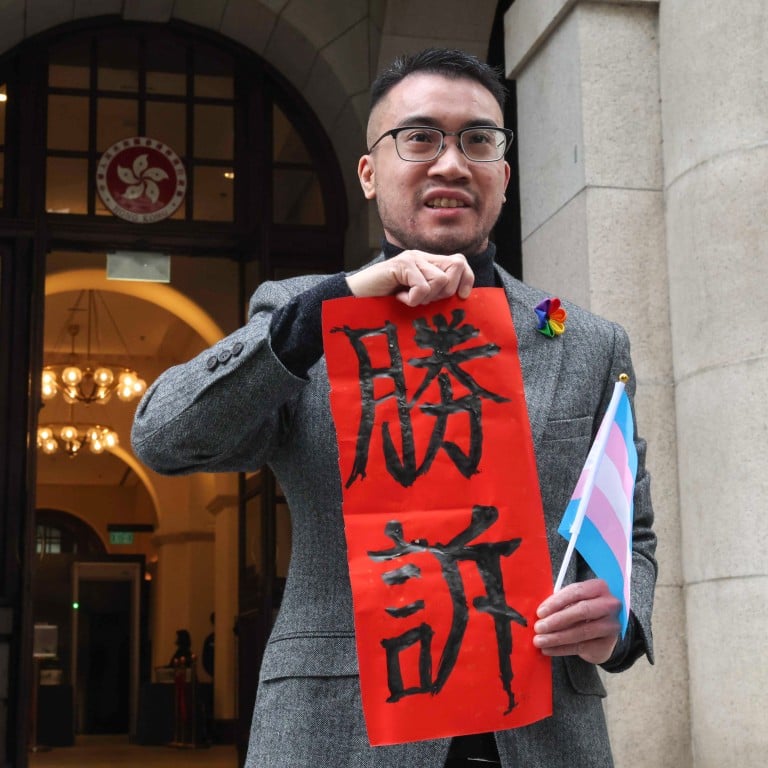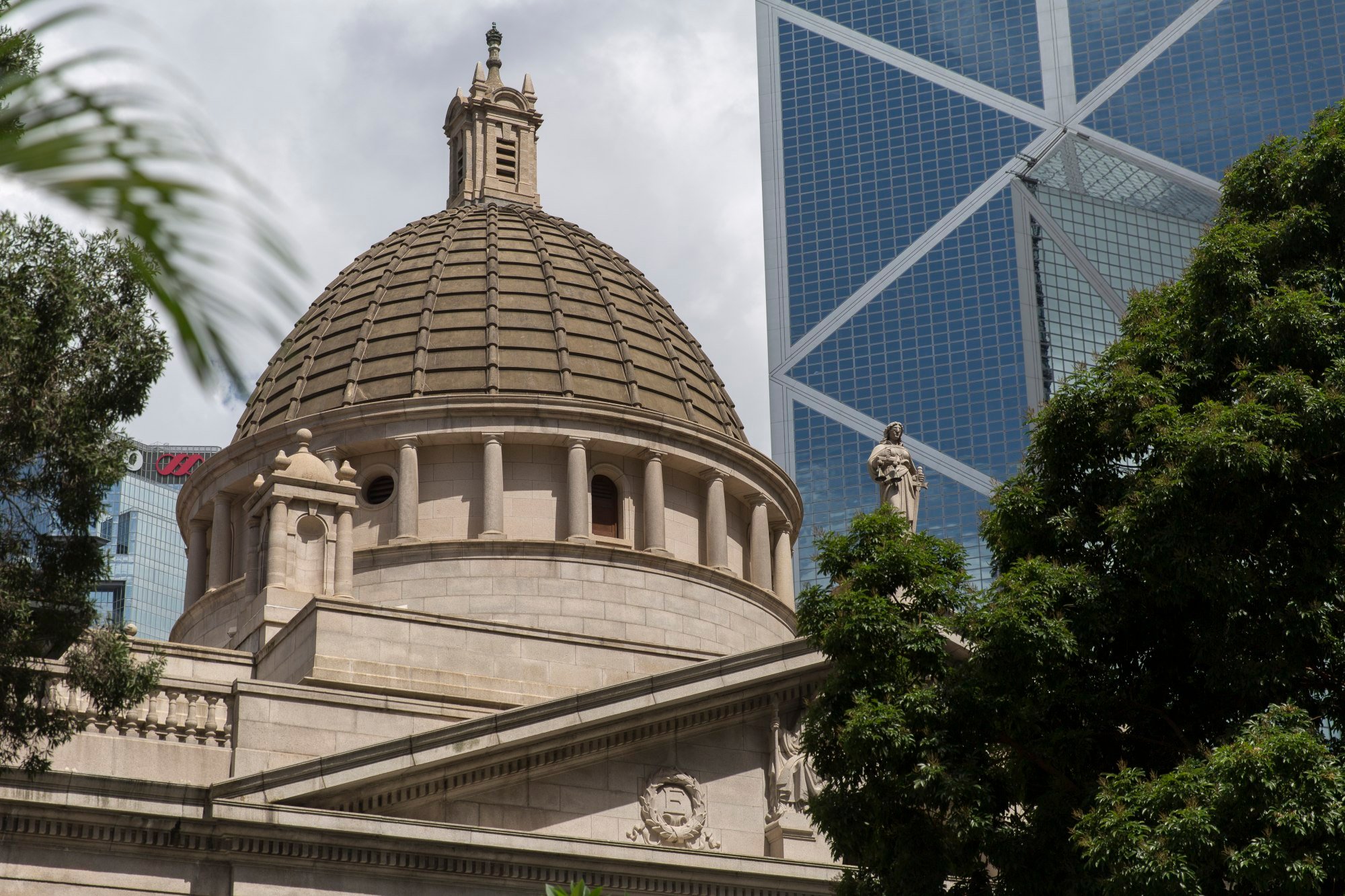
Transgender rights: top Hong Kong court says in landmark ruling government breached rights of 2 trans men by preventing them from changing ID cards
- Case brought by Henry Edward Tse and ‘Q’ in 2019 against commissioner of registration after he refused to review gender status on identity cards
- Ruling means government can no longer impose sex reassignment surgery as a precondition for wider gender recognition
Hong Kong’s top court handed down a landmark ruling on Monday finding that authorities’ refusal to allow two transgender people to use their preferred gender on their identity cards without undergoing full reassignment surgery had breached their rights.
The ruling, the result of a years-long legal battle, meant the government could no longer impose such surgical procedures – often considered risky by the transgender community – as a precondition for wider gender recognition.
“I can live like any other man,” one of the litigants, Henry Edward Tse, a trans man, told the Post after the Court of Final Appeal victory.
But it was not immediately clear what threshold the Immigration Department would adopt for any change of gender on identity cards in the future.
Trans activist in Hong Kong court battle for ID card gender change publishes book
Tse and another trans man, identified as “Q”, filed their case against the commissioner of registration – a role filled by the director of immigration – in 2019, after he refused to review the gender status on their identity cards. Despite having gone through hormonal treatment and having their breasts removed, the pair were told surgery would still be necessary to reconstruct their genitals.
In Monday’s unanimous ruling, in which the government was found to have breached the trans men’s privacy right under the Bill of Rights, five justices from the top court said the commissioner’s requirement stopped short of being “the only workable, objective and verifiable criterion”.
They noted that despite the commissioner’s insistence, his department had been granting exemptions to those with certificates pointing to medical reasons and other considerations that made surgery unsuitable.
“These exceptions show that requiring full sex-reassignment surgery [SRS] is not the only line that can be drawn for deciding whether alterations to gender markers should be made,” justices Roberto Ribero and Joseph Fok wrote in the joint judgment on behalf of all five judges.
“Other criteria, short of requiring full SRS, are plainly workable.”
Lawyers for Tse and Q had argued that other jurisdictions coped well without the requirement for the full medical procedure, including Britain, which used a certification scheme involving legal and medical experts. The judges agreed.
Tse, who studied in the UK, for example, holds a British passport which recognises his gender as male.

While the commissioner had previously argued that letting a trans woman with a male sex organ into an female changing room could give rise to “practical problems”, the judges focused on “possible external incongruence”, saying a transgender man could find himself even more out of place with his facial hair and male physique in the same location.
“It is only rarely that exposure of a person’s genital area is required,” they said. “In the great majority of cases of possible external incongruence, leaving the gender marker unamended produces greater confusion or embarrassment.”
Transgender trio fail in bid to be listed as male on Hong Kong ID card
The judges also dismissed the commissioner’s suggestions that a trans man could still bear a child if he had not removed his female sexual organs. They said it was “plain and obvious” to believe that they would rather stick to their adopted gender.
But the judges stressed the change of status on the ID card would only be used for the purpose of identifying the cardholder and the legal status of the person’s gender at birth remained unchanged.
Both Tse and Q had asked for such a prerequisite to be scrapped, but previously lost the case in both the Court of First Instance and Court of Appeal.
Daly and Associates, a law firm which specialises in LGBT rights cases but was not involved in the present one, said it welcomed the ruling.
“Policies have an effect on people’s lives – this is not in doubt. And in the case of Q and Henry Tse, we are happy to see the court’s recognition of the disproportionate damage done to vulnerable transgender people in the name of administrative convenience,” a spokesman said.
He said that 10 years after “W” – another significant case on trans rights – the court had once again “made strong and unequivocal statements” that called for action to be taken by the government.

